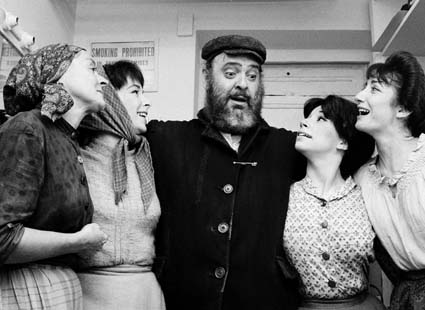On This Day in History, February 28: He Didn’t Just Fiddle Around

Zero Mostel was born Samuel Joel Mostel in Brooklyn on Feb. 28, 1915, son of a rabbi, Israel Mostel, and his wife Zina (Druchs).
As a child he started doing imitations for the amusement of his classmates in Brownsville and developed a passion for art and drama. After graduating from CCNY as an art and English major and briefly attending NYU for a master’s degree, he worked during the Depression as a factory laborer, longshoreman and miner and filled other itinerant jobs, then lectured on art and began painting for a living.
He began his professional career as an entertainer in 1942, as a stand-up comic in nightclubs — one of them was with a cabaret act at the Café Society Downtown. Within months he was performing on radio and in vaudeville. A young Mostel appeared in the Broadway play Keep ’Em Laughing in 1942. In 1943 he played dual roles in the movie DuBarry Was a Lady.